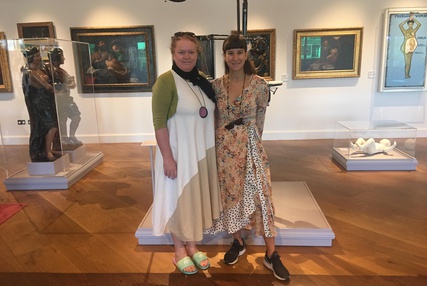Identifying Successful STARTS Methodologies Conference 2020
University of Wolverhampton is to host conference looking into the successful outcomes of the STARTS prize on the 1st and 2nd July 2020.
‘Identifying Successful STARTS Methodologies’ is an interdisciplinary research project, led by Dr Denise Doyle at the University of Wolverhampton, UK, in collaboration with the EU STARTS (Science+Technology+Arts) Prize and Ars Electronica, Austria. This project has two key aims: investigating the methodological features of successful art-science-technology collaborations; and analysing the forms of knowledge which art-science-technology collaborations produce.
Based at the University of Wolverhampton and taking place over two days, the conference will bring, together researchers and practitioners, who are engaged with broad themes of ethical and societal impact addressed by the Horizon 2020 agenda and the wider STARTS ecosystem. The ‘Identifying Successful STARTS Methodologies’ team invites submissions – both written and practice based – on four broad themes arising out of their research, addressing questions relating to both contemporary and historical art-science-technology practice: Collaborations, Translations, Histories and Ecologies.
In addition the conference will be accompanied by a STARTS-themed exhibition, illustrating the work of the team’s interdisciplinary research in relation to previous winners and honourable mentions of the STARTS prize, as well as featuring video abstracts from the prize and documentation of the case studies the team have undertaken.
About
In early 2019 an interdisciplinary team of researchers from the University of Wolverhampton led by Denise Doyle, were awarded funds to join the STARTS Prize initiative co-ordinated by Ars Electronica on behalf of the European Commission. Over the course of the last year the team have conducted research into the Winners and Honorary Mentions of the STARTS Prize to see how collaborations succeed, with the aim to further understand how successful projects engage across Science, Arts, and Technology, and the ways in which this can be used effectively to address issues outlined by Horizon 2020 (sustainability, innovation, education, inclusion).
More information on http://wlvstartsconference2020.com/



